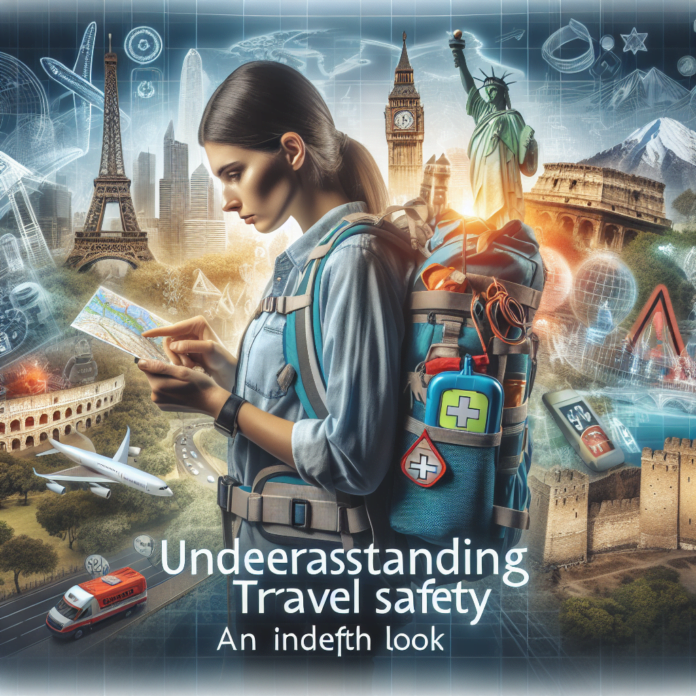Safe travel should be a top priority for everyone, but particularly for those who frequently venture out of their familiar surroundings, whether for business or pleasure. When we speak of travel safety, we refer to the measures taken to minimize personal risks and dangers that a traveler might encounter. While we can’t predict every mishap that might occur during a journey, understanding travel safety helps you to be equipped and prepared for any unforeseen events.
Types of Travel Risks
Travel risks can be typically categorized into three groups:
- Environmental Risks: These involve health risks associated with different environmental conditions, such as malaria in certain tropical regions, altitude sickness in high-altitude areas, or potential natural disasters.
- Social and Political Risks: These include risks arising from the social or political climate in a region, such as protests, civil unrest, or terrorism threats.
- Personal and Psychological Risks: These include risks connected to personal health and wellbeing, like stress, mental health issues, or unexpected illnesses and accidents.
Planning for Travel Safety
Planning can mitigate to a great extent, the possible risks associated with travel. Here’s an overview of crucial factors to consider:
Research Your Destination
Understand the political, health, and security situation of your destination by researching current events, reading travel advisories, and consulting with reliable sources. This helps you to be cognizant of the potential dangers and risks and take necessary precautions.
Travel Insurance
Do not overlook the importance of travel insurance. Ensure that your policy covers medical expenses, cancelation and delay costs, and loss of personal belongings or luggage. Carefully read the policy’s fine print to understand what’s covered and what’s not.
Health Precautions
Depending on your destination, you will need to take certain health precautions. Consult with a medical practitioner or a travel clinic to understand the necessary vaccinations or preventative medications you might need. Pack a small travel health kit with basic medicines and first-aid supplies.
Stay Connect
Share your travel itinerary with close friends or family. Keep them updated to ensure that they know your whereabouts. Leverage technology to stay connected, like using GPS tracking or emergency SOS applications.
Cultural Considerations
Respect the social and cultural norms of the place you are visiting. This not only enhances your travel experience but also decreases the likelihood of facing unwelcomed situations or conflicts.
Travel Safety Tips During the Trip
Although planning is a critical aspect of travel safety, being vigilant and sensible during your trip is equally important. Here are some tips to keep in mind:
- Use common sense and pay attention to your surroundings. Avoid risky situations and questionable activities.
- Monitor local news regularly and be aware of events that could affect your safety.
- Keep your valuable belongings secure and hidden.
- Check-in regularly with someone back home.
Conclusion
In conclusion, travel safety is an essential element of any journey, whether domestic or international. Preparation and awareness reduce many potential risks and take the unpredictability out of travel, providing you with security, peace of mind, and an enhanced travel experience.
FAQs
1. What is the most critical part of travel safety?
Every aspect of travel safety is important to ensure a secure journey. However, pre-travel preparation and research about potential risks and health precautions can make a significant difference.
2. Is travel insurance necessary for every trip?
Yes, it is recommended to have travel insurance for every trip you take, whether domestic or international. It covers you in case of unexpected medical emergencies, trip cancellation, delays, and theft or loss of belongings.
3. How can I keep my belongings safe while traveling?
Be vigilant about your belongings. Use hotel safes for your expensive items and do not flaunt expensive items or cash in public. When necessary, use anti-theft travel gear.

